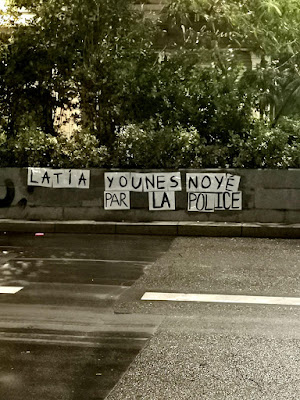My apologies to whomever I grabbed this from off the web. It was over a year and a half ago and I can't remember where I got it from.
According to the post, this is who is in the photo:
First row, left to right:
Abdelhak Benabbes (known as Tcheka), who played naghrat (percussion) in Cheikh Raymond's group
Cheikh Raymond Leyris
Mustapha Skandrani (the great pianist who accompanied Reinette L'Oranaise, Hadj El Anka, Amar Ezzahi, and El Hachemi Guerouabi, among others)
Sylvain
Ghrenassia (violinist in Raymond's group and father of Enrico Macias)
Alexandre "Judas" Nakkache (Jewish Algerian singer from Constantine)
Second row left to: Haddad Djillali (composer and conductor who worked with Meriem Abed, Rabah Driassa, Fadila Dziria, Leila El Djazairia, and Latifa, among others)
Meriem Abed (singer, active in 50s and 60s)
Hadjira Bali (singer from Oran, 1928-60)
Saim El Hadj (maybe; composer and playwright from Oran)
Khelifi Ahmed (singer, noted for Bedouin songs)
Nadjat (maybe; singer)




